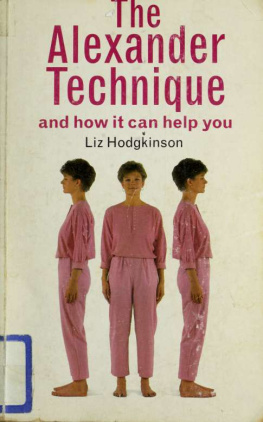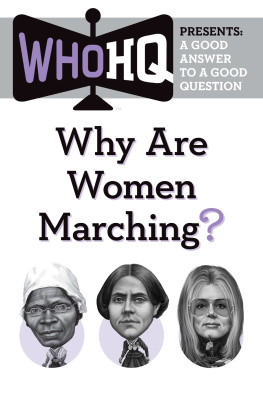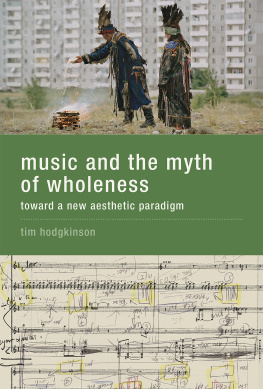Select Bibliography of books quoted or
cited in the text.
Armstrong, Karen: The Gospel According to Woman: Christianitys Creation of the Sex War in the West. Pan, 1986
Bentley Hart, David: Atheist Delusions: The Christian Revolution and its Fashionable Enemies, Yale, 2009.
Bohm, David: Wholeness and the Implicate Order. Routledge, 1996
Botton, Alain de: Religion for Atheists (ital), Hamish Hamilton, 2012.
DAquili, Eugene G: The Mystical Mind: Probing the Biology of Religious Experience. Fortress Press, 1999.
Dawkins, Richard: The Selfish Gene, Oxford University Press, 1976
The God Delusion, Houghton Mifflin 2006
The Greatest Show on Earth, Transworld, 2009
Eagleton, Terry: Reason, Faith and Revolution: Reflections on the God Debate, Yale, 2009.
Friedan, Betty: The Feminine Mystique, WW Norton & Co, 1963
Hitchens, Christopher: God is not Great: Why Religion Poisons Everything. Atlantic Books, 2007
Hitchens, Christopher: Hitch-22: A Memoir. Atlantic Books, 2010
Jayanti, BK: Gods Healing Power. Michael Joseph, 2002
Meadows, Donella H, Randers, Jorgen and Meadows, Dennis L: The Limits to Growth, first published 1972; updated edition, Chelsea Green, 2004.
Mountford, Brian: Christian Atheist: Belonging without Believing. O Books, 2011
Parks, Tim: Medici Money: Banking, Metaphysics and Art in 15th century Florence. Profile, 2005
Parks, Tim: Teach Us to Sit Still. Harvill Secker, 2010
Steinem, Gloria: Outrageous Acts and Everybody Rebellions. Flamingo, 1984. Contains the article, If Men Could Menstruate.
Walsch, Neale Donald: What God Wants. Atria, 2005
Wollstonecraft, Mary: A Vindication of the Rights of Woman. Penguin edition, 2004
Zens, John : No Will of My Own: How Patriarchy Smothers Female Dignity and Personhood. Ekklesia Press, 2011
Chapter One
Women and Religion
The late Finnish lawyer, Helvi Sipila, champion of womens rights at the United Nations, was fond of saying that although half the world was found by Christopher Columbus in 1492, it took the world another 500 years to find the other half women.
According to Silipa, women were discovered, for all practical purposes, in Mexico in 1975, when the UNs first International Year for Women was held, and this sparked off the UN Decade for Women in 1976. From that date, definite targets began to be set to secure equal access for women to education, employment, promotion, political participation, healthcare, housing, nutrition and contraception.
It is now unarguably the case that those countries where women are found at high levels in government, industry and the professions, such as Scandinavia, are the most advanced in the world. By contrast, the most backward and uncivilised states are all controlled by men.
So why did it take so long and need such a special effort for the world to recognise women as people in their own right? After all, or so one assumes, women have been around just as long as men.
Step forward, religion, and hang your head in shame.
One of the most distressing aspects of organised religion, and in particular the five main world religions of Hinduism, Buddhism, Judaism, Christianity and Islam, is the way they have without exception marginalised and oppressed women throughout the ages. Since the inception of these religions, women have been considered inferior to men and not worthy of the same treatment. For centuries this was seen as the natural order of things, enshrined in Holy Writ and therefore the word of God.
It was not even questioned until very late in the worlds history.
There has never been any gender equality in any of the main religions or their many offshoots, and probably never will be while these religions continue to wield any power or influence. Even nowadays, every time an evangelical or fundamentalist branch of a particular religion surfaces or gains power, women are instantly relegated back to secondary, subordinate positions. We have seen this with the Taliban and other terrorist groups operating in the name of religion, where girls schools have been closed down or bombed, and women ordered back in to the burqa, on pain of death, and even punished for being raped.
There was also, in July 2009, a shameful case in the Sudan where 13 women were arrested for wearing trousers in a restaurant, and sentenced to 10 lashes and a 65 fine each for indecent dress. Ten of the women accepted the sentence, but three challenged it and brought the case to court, when it became an international incident. The so-called decency laws are supposed to originate in the Koran, but one of the women, journalist and UN worker Lubna Hussein, said, It is not about religion. It is about men treating women badly. Although the Sudanese ambassador in London wrote to newspapers saying that the women were not being punished for indecent dress but for loud and lewd behaviour, their barbaric punishment indicates the low esteem in which women are held in that country.
This particular incident happened to come to international attention, but it is by no means an isolated occurrence. Throughout the ages, men have taken it upon themselves to dictate suitable dress and behaviour for women in the name of religion, yet it has never happened the other way round.
In her book She For God, an overview of the way women have been treated and regarded in Christianity, Katharine Moore writes that at the time of Christ, women in the so-called civilized world were little better than slaves. And although there were a few redoubtable female characters depicted in the Old Testament of the Bible, such as Ruth, Judith, Esther and Naomi, and also in Greek tragedy, these people, whether real or fictional, had little or no influence on the low status of women generally. In Judaism, the law was taught only to boys and few Jewish girls were even taught how to read.
In a court of law, no Jewish woman was ever considered to be a reliable witness.
In classical times, Aristotle believed women were basically slaves and inferior to men in moral, physical and intellectual power. It was even doubtful, in many traditions, as to whether women possessed souls or were properly human. In Roman law, the woman was always in the power of a man, whether father, husband or brother, and she had no rights over her own children. This law was to persist in the West until the end of the nineteenth century, when theories about mother/child bonding began to have influence, after which mothers were usually awarded custody.
Although women played a significant part in the spread of early Christianity, this did not last long and they were soon supplanted by men in every position of power and influence. Early female Christians could be martyrs and thrown to the lions, but were never allowed to be priests or take holy orders. When the Normans conquered Britain, they did not allow women to inherit property, a law that remains in place to this day, at least where great estates are concerned. Women were never allowed to be Queens or Heads of State in any European country, except by default when there was no male heir. With the rise of Puritanism and Protestantism, the denigration of women increased, and the many witchcraft trials all over Europe found mainly women guilty of being witches. It was very rare that a man was burned at the stake as a witch.
By Victorian times, the status of women had sunk even lower, if possible, than before and the patriarchal family unit assumed more importance than ever. One remembers the great nineteenth-century writer Charles Dickens, the champion of the downtrodden, drawing up a Deed of Separation between himself and his wife Catherine, after she had borne him ten children, and banishing her from his and their childrens lives. And there was absolutely nothing she could have done about it; he held all the power and she had none. This is not an isolated incident, but just one of the more famous examples of the way women could be discarded by their husbands.











